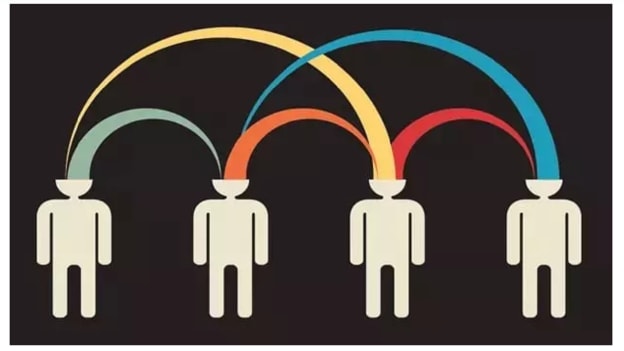Learning how to engage with the future workforce

Talent management is at a crossroads, as organizations devise new strategies to unleash the potential of a multi-dimensional and diverse workforce. Never before, have the capabilities of digital-first, agility, speed, collaboration, etc. been more relevant for success. Organizational expectations from the workforce are changing, and so are employees’ expectations from the organization. The rise of millennials with their unique aspirations, and the growing prominence of the gig economy are compelling recruiters to rethink the “Employee Value Proposition”, and replace it with the “Individual Value Proposition”.
The Workforce of the Future: Key Expectations
If HR is to unlock the key to successfully attract, engage and retain future talent, the first step it must undertake is to understand the new-age employee psyche:
Work-life integration and balance: The way millennials envision and engage with work-life stands out drastically. The modern millennial is moving away from “fitting in” to “what suits me”. A case in point- the need for better work-life balance seems to be a major factor for agency-professionals switching to corporate marketing careers*.
Value-based job selection: Next-gen employees view their workplace as a natural extension of their own selves. Boundaries between personal and professional lives are fast blurring, with the young generation standing “true to themselves” even in the work environment. People are increasingly selecting their future employers based on value-alignment rather than mere financial or career progression.
Digital-first: The future workforce comprises of the digital-natives; they expect to be digitally-empowered at their workplaces. Organizations must make an effort to embrace digital ways of communication and working, so that millennial job-seekers feel at home and are attracted by the digital opportunities at the workplace.
Work arrangements: Gone are the days of life-long or even long-term careers**. Top talent is seen to “float” rather than stay and grow in one company**. The gig economy is on the rise, and the future workforce is looking at new working-ways such as flexible working, remote working, part-time working, contractual working etc. According to a Deloitte survey, 75% of Millennials believe that a "work from home" or "work remotely" policy is important***. Organizations must recognize the value this population brings, and build processes and environment to leverage this population.
The experience matters: The future workforce views employment as an “experience”. They seldom get excited by linear career progressions and run-of-the-mill assignments. Challenging assignments, mobility, personalized working arrangements, aligned culture and values- these are the differentiators that will help build a unique engagement strategy for this future-forward workforce.
Leaders must listen to these employee-asks and design the talent philosophy basis their needs, so as to bring in fresh perspectives for the future. At the same time, they must retain the Generation Y and baby boomers, who bring in the foundational know-how and experience. This is the true challenge that HR and recruiters and line managers face today.
How HR can take the first step
Tapping into high potential future talent requires the HR to think differently, as the custodian of people processes, policies and culture. The CHRO must, start off by building the business case and mobilising investments for a future-friendly workforce. Here is what to consider:
Restructure for future-readiness: Organizations will become future-ready only if they enliven the future capabilities such as agility, speed, collaboration, open communication etc. These values reverberate with the millennial values. HR must restructure the organization- break down the silos, and build a fluidic workplace. This will help create the supporting foundational structure to attract and engage young talent.
Redefine roles: HR must reassess and redefine workforce plans and roles based on the desired future-capabilities. Conceptualizing roles such as Chief Digital Officer, Chief Employee Experience Officer, Chief Innovation Officer- will help attract the stewards of the future. Recruiters must actively advertise these positions through open channels, to create a future-savvy EVP (or IVP). Such savvy roles which reverberate the millennial value-system are sure to attract top talent for the long term.
Build future leadership: Leadership is turning more inclusive and collaborative. Existing leaders who demonstrate this new leadership style, can better attract future top talent. At the same time, millennials believe in taking on leadership challenges early-on. HR must create these opportunities by making available challenging leadership assignments. To equip these enthused employees to succeed, L&D must invest in leadership assessment, leadership development and mobility across the organization. Continuous learning is a key engagement driver for the new generation.
Personalize policies and rewards: Millennials want to work the way they want to work. HR must reinvent the wheel to tap into this new population which expects to work anytime, anywhere, and as per their preferences. For example, certain millennials may prefer additional time-off, rather than an insurance coverage, as a workplace benefit. HR must personalize the working arrangements and Total Rewards offerings to suit each individual, there is no “one size fits all”.
Cultivate the right culture: According to the research by Great Place to Work****, when millennials experience a great culture, they want to stay. Building a welcoming, inspiring workplace requires consistent effort by leadership, by building the organizational value-system. HR must emphasize the organizational values through all employee touchpoints, in an open and transparent manner. HR must portray the workplace experience as more than “just a job”, it must be a reflection of peoples’ personal beliefs.
HR can kickstart the future-engagement agenda with the above pointers in mind, but for sustained success, this must become a mainstream C-suite agenda. The employee experience must be owned not only by HR, but by the extended leadership team. With everyone’s active involvement, driving this positive change should become easier and yield faster results. For this, leaders themselves must live the values such as change-readiness, flexibility, adaptability, agility, collaboration, etc. Engaging the future workforce is not a one-time affair, it is a continued effort to keep up with the ever-changing workforce.
References
https://brandinginasia.com/a-renewed-shift-towards-a-more-fluid-talent-exchange/ -
https://www.willistowerswatson.com/en-IN/Insights/2019/03/engaging-the-future-workforce
https://www.inc.com/peter-economy/the-millennial-workplace-of-future-is-almost-here-these-3-things-are-about-to-change-big-time.html
https://fortune.com/2019/07/10/how-millennials-are-changing-the-face-of-leadership/
https://www.shrm.org/foundation/ourwork/initiatives/preparing-for-future-hr-trends/Documents/10-15%20Randstad%20Presentation.pdf
https://fortune.com/2019/07/10/how-millennials-are-changing-the-face-of-leadership/
https://www.inc.com/peter-economy/the-millennial-workplace-of-future-is-almost-here-these-3-things-are-about-to-change-big-time.html
















